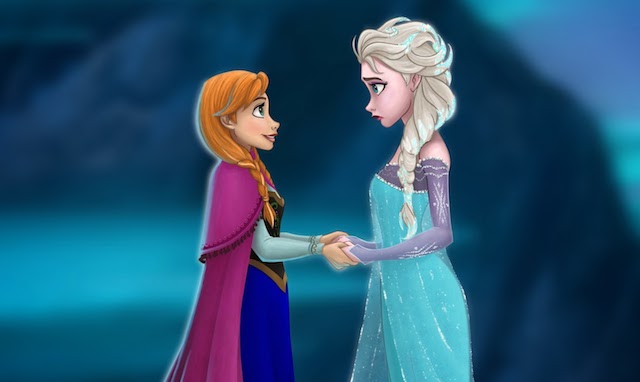By Katherine Mayhew
Hollywood’s biggest night, the Oscars, was—as per usual—a celebration of the best dressed celebrities, the past year’s blockbusters and of Tinseltown’s up-and-comers and old guard. A fresh performance from Ellen Degeneres was the highlight of the evening, with one witty skit followed by an even cleverer next. While many of this year’s winning films explored controversial themes such as racism, sexuality and drug culture, surprisingly, one thing is sill largely absent: a cast dominated by leading female actresses whose purpose is not to please, ponder over or persuade men.
A simple measurement called the Bechdel test monitors the presence of female characters in film. There are three criteria that must be met for a movie to “pass” this test. The movie must:
1) have at least two female characters
2) who speak to each other
3) about something other than a man
That’s it.
The test was first coined in 1985 by the cartoonist Alison Bechdel, whose comic strip Dykes to Watch Out For explored the idea in a strip called “The Rule.” That was in 1985. It’s 2014. You’d be surprised at how many movies still don’t pass this test.
The winner of Best Picture, Steve McQueen’s pre-Civil War drama “12 Years a Slave,” fails the test. “The Wolf of Wall Street,” “Her,” “Captain Phillips,” and “Gravity” all nominations in the same category, also fail, while “American Hustle,” “Dallas Buyers Club,” “Nebraska,” and “Philomena” pass.
The category for Best Animated Picture had two standouts, among them the winner, Disney’s “Frozen,” a fantasy/comedy starring two strong-willed sisters, is a breakthrough for Disney, which was known for reinforcing primitive gender roles until now. The film served as proof that strong female characters—even animated ones— can sell tickets at the box-office. Also passing the test in the category was Universal’s “Despicable Me 2.” The much-loved comedy also features strong sisters, as well as a kick-ass female agent character named Lucy Wilde. The three other films nominated, “The Croods,” “Ernest & Celestine,” and “The Wind Rises” did not pass the test.
Notably, all five nominees in the category for best director were male.
It must be mentioned that the Bechdel test isn’t perfect; its relatively simple criteria doesn’t define whether a movie is “good” or “bad.” It doesn’t acknowledge nuance (a chiefly male-dominated film could pass the test if two female characters speak very briefly, even if on nail polish or perfume), or the fact that subject matter alone can fail the test without necessarily indicating gender bias (“Gravity” and “Her” are both dubious due to their limited number of characters overall). But it is still a good benchmark and jumping-off point to get people thinking about gender in film. In fact, Sweden announced last year that in order for a movie to receive an “A” rating, it must pass the Bechdel test.
Although the turnout at the 2014 Oscars is a step in the right direction – with many strong female personalities honored and celebrated — there are still strides to be made before women have equality on the big screen. Perhaps next year, we’ll be cheering for a film dominated by smart, strong female characters (sans men problems) that scores the honor of Best Picture—now that would be something to write home about.
 About the Writer
About the Writer
Katherine Mayhew is a junior at Princeton University, where she is majoring in English Literature and minoring in Spanish Language and Culture. She is also a member of the women’s varsity crew team and an intern at the university’s women’s center. Even though now she’s indefinitely based on the East Coast, her Pacific Northwest roots are strong–she loves hiking, coffee, good books and rainy days (not necessarily in that order).



